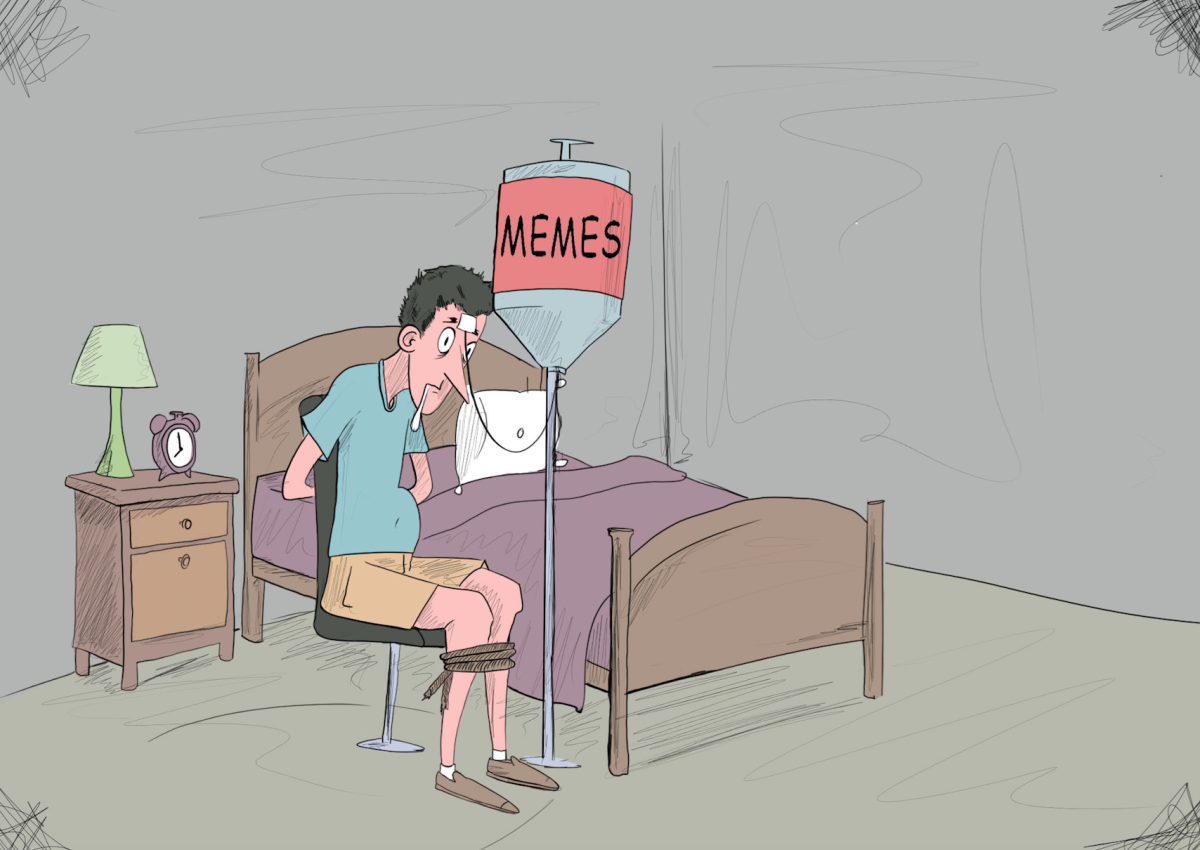We live in a society dominated by media technology polarizing news outlets feed us biased sludge. Social media has us checking our phones during every conversation pause. We place bigger value on an Instagram post with an “I voted” sticker than on the vote itself. “Politically correct” activists set arbitrary standards for what we can and can’t say.
We use language to express our opinions about the world around us, and an incredibly powerful tool in our arsenal is comedy. Comedy serves as a lighthearted way to point out what bothers us.
Unfortunately, when people are actively looking for things to get offended by, comedy suffers. Everyone has a different limit of what’s considered “too far” or untouchable in comedy, so we’re forced to play it safe or fall prey to a horde of ravenous sensitive snowflakes.
Of course, humor is subjective. Surely, there are people who enjoy actor Seth Rogen’s plethora of identical films filled to the brim with weed, crude jokes and childish adults. If you look hard enough, you might even find a fan of actress Amy Schumer’s likewise crude and childish jokes.
We’re allowed crude humor these days, but it’s all harmless. It’s allowed because it doesn’t mean anything and it doesn’t make anyone think. We pretend to be well-adjusted by weathering lewd jokes, but we fall apart at the comedic suggestion of a real issue. The way we’ve redefined “safe” lets us believe we’re not as sensitive and thin-skinned as we really are.
The king of edgy humor in the 21st century is one we’re all familiar with. A meme is a joke formatted to be easily transformed and spread around. As such, there is no one meme, you simply know one when you see it.
And you will see it. Over and over again, the same meme or variations of the same one will pop up every time you open social media. The jokes are so safe and predictable as to have a sort of schedule. Several Facebook pages take advantage of the “meme of the month,” as memes usually see widespread popularity during only one month.
Some memes are funny, true. Some are subversive and break the PC mold around them, and some are utterly creative. But creativity is still an issue; memes are rarely original, but even when they are, the legions of consumers who recite them nonstop are not. Reciting a meme is like listening to someone make a funny joke quietly and repeating it louder, drinking in the adulation from someone else’s work. It’s an unnecessary inflation of one’s own ego resulting from a lack of creativity or work. If reciting a joke you’ve heard elsewhere and claiming it as your own garners approval from peers, why not do it?
What’s worse is the recipients of the joke know it’s coming. Memes are so widespread it’s reasonable to assume they know the joke they’re being told and have been told a thousand times. So, why are they laughing?
Perhaps we laugh because it’s easy, it’s safe and we won’t get in trouble for it. Even enjoying a clever but insensitive joke will win you some disapproval, but chuck- ling over the same meme everyone else is enjoying is a bit of stability in the hectic time we live in.
We’ve always used language to comment on our surroundings. Be it sardonic essays, symbolic novels, biting music or critical comedy shows, we can’t help but express our thoughts. In a time where so many fear the government suppressing what we can say, we ourselves have become the ones who suppress language.
As bleak as it can sound, it’s not too late. As long as we have the freedom to use language any way we choose, we still have time to correct our situation. The next time you hear a joke and are offended, I urge you to take a step back and ask why you’re offended. You might find it’s just because someone said you should be.
Kyle Richoux is a 20-year-old sociology junior from LaPlace, Louisiana.
Opinion: Clever comedy replaced by safe, sensitive jokes
By Kyle Richoux
November 19, 2018
cartoon








